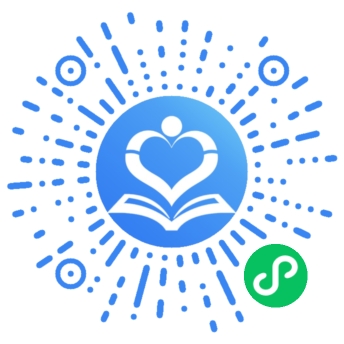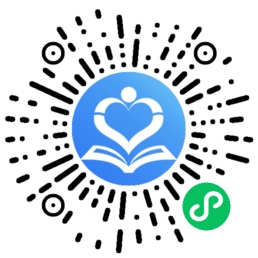中共党史专业介绍
中国共产党历史专业属于法学门类,政治学一级学科,该专业主要研究中国共产党的历史发展、理论政策与实践,探索中国共产党领导中国革命、建设、改革和党的建设的历史经验教训,揭示中国共产党执政规律、社会主义建设规律、人类社会发展规律。
英语单词分类 轻松记单词
arrive
英[ə'raɪv] 美[ə'raɪv]
"She arrived home at 7 o'clock"
"She didn't get to Chicago until after midnight"
"After he published his book, he had arrived"
"I don't know whether I can make it in science!"
"You will go far, my boy!"
1.(人或交通工具)到达,抵达
When a person or vehiclearrives at a place, they come to it at the end of a journey.
e.g. Fresh groups of guests arrived...
新的客人接踵而来。
e.g. ...a small group of commuters waiting for their train, which arrived on time...
几个通勤者等候的列车按时到达了
2.初次来到;初来乍到
When youarrive at a place, you come to it for the first time in order to stay, live, or work there.
e.g. ...in the old days before the European settlers arrived in the country.
在欧洲殖民者来到这个国家之前的旧日时光
e.g. ...a young student newly arrived in England from New Zealand.
从新西兰初次来到英格兰的年轻学生
3.被送达;被带来
When something such as letter or mealarrives, it is brought or delivered to you.
e.g. Any entry arriving after the closing date will not be considered...
截止日期之后报名参赛的人将不予考虑。
e.g. Breakfast arrived while he was in the bathroom.
早餐送来的时候他还在浴室里。
4.(新产品或发明)出现,到来,问世
When something such as a new product or inventionarrives, it becomes available.
e.g. Several long-awaited videos will finallyarrive in the shops this month...
几部让人翘首企盼的录像片终于将在这个月到货。
e.g. They'll be ready to embrace the new technology when it arrives.
他们随时准备迎接新技术的问世。
5.(尤指经过等待或期盼后)来临,到来
When a particular moment or eventarrives, it happens, especially after you have been waiting for it or expecting it.
e.g. The time has arrived when I need to give up smoking.
我戒烟的时机已到。
e.g. ...the belief that the army would be much further forward before winter arrived.
认为军队在冬季来临之前将会向前大举推进的看法
6.作出(决定)
When youarrive at something such as a decision, you decide something after thinking about it or discussing it.
arrive的反义词
e.g. ...if the jury cannotarrive at a unanimous decision...
如果陪审团不能作出一致判决
e.g. These figures are arrived at on the basis of dentists' receipts for 1991-1992.
这些数字是根据1991至1992年间的牙医收据统计得出的。
7.(婴儿)出生,降生
When a babyarrives, it is born.
arrive的翻译
e.g. It's very unlikely that your baby willarrive before you get to hospital.
你的孩子不大可能在你到达医院之前就出生。
8.取得成功;成名
If you say that someonehas arrived, you mean that they have become successful or famous.
e.g. These are cars which show you've arrived and had a good time along the way.
这样的车可以显示你已功成名就,并且一路顺风顺水。
1.
1. 动词:2.及物动词 (tire) 使疲乏1.不及物动词 (arrive) 露面2.不及物动词 (be found) 出现3.及物动词 (give) 移交
2. arrive的近义词
2. 抵达:hungry饥饿 |arrive抵达 | way路线
3. 到达;抵达:到处 everywhere | 到达;抵达arrive | 到达;够着 reach
We shall arrive soon after.
我们将很快就到达。
You must arrive at the airport two hours early.
你必须提前两小时到达机场。
The great day has arrived.
伟大的日子已经到来。
The baby finally arrived just after midnight.
婴儿终於在刚过午夜时候降生了.
You know you've arrived when you're asked to appear on TV.
邀请你在电视上亮相的时候,你就知道你已经名声在外了。
to arrive at an agreement'/a decision'/a conclusion
达成协议;作出决定;得出结论
The new product will arrive on supermarket shelves (= be available) early next year.
明年初该新产品就会在超级市场上架。
The wedding day finally arrived.
婚礼这一天终于到来。
The baby arrived (= was born) early.
婴儿早早地出生了。
He knew he had arrived when he was shortlisted for the Booker prize.
被列入布克小说作品奖决选名单后,他知道自己成功了。
Send your application to arrive by 31 October.
申请信要在10月31日前寄到。
We waited an hour for our lunch to arrive.
我们等午饭等了一小时。
I was pleased to hear you arrived home safely.
听说你平安到家我很高兴。
to arrive early'/late for a meeting
开会早到 / 迟到
She'll arrive in New York at noon.
她将在正午抵达纽约。
The train arrived at the station 20 minutes late.
火车迟了20分钟到站。
By the time I arrived on the scene , it was all over.
我来到现场时,一切都已结束。
We didn't arrive back at the hotel until very late.
我们很晚才回到了旅馆。
The police arrived to arrest him.
警察赶来逮捕了他。
A letter arrived for you this morning.
今天上午来了一封给你的信。
I'll wait until they arrive.
我会一直等到他们来。
These figures are arrived at on the basis of dentists' receipts for 1991-1992.
这些数字是根据1991至1992年间的牙医收据统计得出的。
It's very unlikely that your baby will arrive before you get to hospital.
你的孩子不大可能在你到达医院之前就出生。
These are cars which show you've arrived and had a good time along the way.
这样的车可以显示你已功成名就,并且一路顺风顺水。
Breakfast arrived while he was in the bathroom.
早餐送来的时候他还在浴室里。
Several long-awaited videos will finally arrive in the shops this month...
几部让人翘首企盼的录像片终于将在这个月到货。
They'll be ready to embrace the new technology when it arrives.
他们随时准备迎接新技术的问世。
The time has arrived when I need to give up smoking.
我戒烟的时机已到。
...the belief that the army would be much further forward before winter arrived.
认为军队在冬季来临之前将会向前大举推进的看法
...if the jury cannot arrive at a unanimous decision...
如果陪审团不能作出一致判决
...in the old days before the European settlers arrived in the country.
在欧洲殖民者来到这个国家之前的旧日时光
...a young student newly arrived in England from New Zealand.
从新西兰初次来到英格兰的年轻学生
Any entry arriving after the closing date will not be considered...
截止日期之后报名参赛的人将不予考虑。
Fresh groups of guests arrived...
新的客人接踵而来。
...a small group of commuters waiting for their train, which arrived on time...
几个通勤者等候的列车按时到达了
At last the time arrived for the performance to begin.
演出开始的时间终于到了。
The time has arrived for action.
行动的时间到了。
They arrived on the horse-court at two.
两点钟时他们到达跑马场。
When asked how the invaders had arrived on Guadalcanal Island, he was very vague.
当被问及侵略军是怎样登上瓜达卡纳尔岛时,他含糊其词。
We arrived upon the verge of his estate.
出自:P. SidneyYesterday arrived to me hither your Majesties servants.
出自:O. CromwellHe arrived before eight o'clock every morning and used to depart at seven.
出自:J. BuchanAlready the middle of September was here, and the baby had not arrived.
出自:D. H. LawrencePerhaps she won't even arrive by this plane.
出自:T. S. EliotArriving at the church, he found it filled with a whole tribe of tinkers.
出自:Day LewisBethe arrived in New Orleans long before I was born.
出自:L. Hellman乘火车
arrive
A:We want to take a train to New York.
我们要搭火车去纽约。
arrive
B:Regular or express train?
要普通车还是快车?
A:How much time would we save if we took the express?
如果我们坐快车,可以节省多少时间?
arrive的翻译
B:About one hour. The next express train arrives in New York at 3:15.
差不多一个小时。下一班快车在3点15分到达纽约。
A:And how much more do we have to pay for the express?
那么坐快车的话,我们要多付多少钱?
B:First class is 24 dollars more, and second class is 15 dollars more.
头等票多付24美元,二等票多付15美元。
A:What do you think?
你认为如何?
C:As long as we canarrive one hour earlier, I don't mind paying a little extra.
如果能早一个小时到达我不介意多付一些钱。
arrive
B:OK.Then give me two second-class tickets on the express, please.
好。那么来两张二等快车票。
旅游
A:I will see you off at the airport tomorrow, ok?
我明天到机场给你送行,好吗?
B:Thanks.
谢谢。
A:What time does your flight leave?
你乘的班机什么时候起飞。
B:It takes off at 3:45.
3 点45 分起飞。
A:So, what time do you need get to the airport?
那么你需要什么时间到达机场?
B:They recommend passengers toarrive 2 hours before the flight.
他们建议乘客在起飞前俩个小时到达。
arrive的意思
A:It takes about an hour to get there, so why don’t we leave at noon? We’ll have time for lunch then.
用一个小时就能到哪儿,所以我们为什么不中午走呢?这样我们就有时间吃午饭了。
B:That sounds good.
听起来不错。
A:Have you packed everything?
你行李都准备好了吗?
B:Not yet. I’ll leave that for the morning.
还没有呢。我准备明天早晨整理行装。
A:Are you crazy? Let me help you pack now. You don’t want to leave that for the last-minute.
你真疯了!让我现在帮你整理行装吧,你不要把它留到最后一刻。
B:Ok, if you insist.
好,如果你一定要这样做,就听你的吧。
了解海关手续
A:You've traveled abroad a lot, Jim, so would you like to tell me something about clearing customs.
吉姆,你经常出国旅游,能向我介绍一下关于通关的情况吗?
B:When youarrive in a country, you clear customs. A lot of countries have two channels: the green channel and the red channel. Some countries, like India, have three channels: the white channel, the green channel and the red channel.
到达一个国家时要通关。许多国家的海关有两种通道:绿色通道和红色通道。还有些国家如印度有三种通道:白色通道、绿色通道和红色通道。
A:Then what are the differences between the green channel and red channel?
那么绿色通道和红色通道之间有什么区别呢?
B:If you have more than the duty-free allowances or prohibited goods, you go through the red channel and declare them to a customs officer. If you otherwise have nothing to declare, you go straight through the green channel unless you are asked to stop by an officer. 如果你携带的东西超出免税的范围或属于禁带物品,你
就得从红色通道通过并向海关官员申报物品。如果你没有需要申报的物品而海关官员又没有阻拦你,你就可以直接通过绿色通道了。
arrive的反义词
A:I see.I'm told that we'll have to state the purpose of going to a certain country, is it true?
我明白了。我听说去一个国家时需要陈述旅行的目的,是吗?
B:That's right. People go aboard for different purposes: some for pleasure, some on vacation, some on business, and some for other purposes.
是的。人们出国都各有目的:有的为了消遣,有的出去度假,有的是因公出差,有的是为了其他目的。
A:I'm going to New Zealand for sightseeing. What should I say if they ask about my purpose?
我要去新西兰观光,如果他们问我旅行的目的我该怎么说呢?
B:Just saying "sightseeing" is OK.
说"观光"就行了。
误 I have arrived here for a month.
正 I arrived here a month ago.
析 arrive是瞬间动词,不表示持续动作,不可与表示一段时间的状语搭配。
我下午5点钟到家。误 I arrived at home at five in the afternoon.
正 I arrived home at five in the afternoon.
析 在表示“到家”时,一般不说arrive at home,而说arrive home。home在这里是副词。
A short drive later, wearrived at a busy, noisy factory.
短暂的车程后,我们到了一个繁忙、嘈杂的工厂。
2020连云港市卷
If you take this train, you willarrive in Shanghai in five hours.
如果你乘坐这班火车,你将在五个小时后到达上海。
2020北京市卷
I was a bit nervous before Iarrived here.
在来到这里之前,我有点紧张。
2019黄冈市卷
Then autumnarrived.
然后秋天到了。
2020安徽省卷
When the springarrives, their flowers come out.
当春天到来的时候,他们(蒲公英)的花就会开出来。
2018苏州市卷
When you have bought a fish andarrive home, you'd better store the fish in the refrigerator if you don't cook it immediately, but fresh fish should be stored in your fridge for only a day or two.
当你买了一条鱼回到家, 如果你不立马烹饪, 最好把它储存在冰箱里, 但是新鲜的鱼在冰箱应该只能放一两天。
2016全国卷3
If you give us your number, we'll call you when the CDarrives.
如果你把电话号码留给我们, 等 CD 一到货我们就给你打电话。
2018全国卷1
Theyarrive at the class in low spirits and they leave with a smile.
他们无精打采地来到教室, 却微笑着离开。
2018全国卷3
Once fire and emergency peoplearrive, Larry and the other man backed off and let them go to work.
消防和急救人员一到, Larry 和另一个人就退后, 让他们去施救。
2016全国卷1
Digital camerasarrived on the scene in 1997.
数码相机于1997年问世。
2018全国卷1
上一个:a bottle of
下一个:around
四川高考志愿填报方式:1、进入页面;2、修改密码;3、填报须知;4、查看个人基本信息;5、志愿类别选择;6、填写志愿和修改志愿;7、填写或修改志愿结束后,单击页面底部的[保存并提交]按钮,则所填写的志愿数据将得到保存,保存即表示该批次志愿已经提交。
高考成绩一般都会在考后15天左右公布,不过不同省份查询时间有所差别,具体以各省份发布时间为准。并且全国各省份高考成绩公布时间有所不同,不全在同一天,但绝大部分省市都集中在6月24日、6月25日两天公布高考成绩,有些省份会更早一点。
中国共产党历史专业属于法学门类,政治学一级学科,该专业主要研究中国共产党的历史发展、理论政策与实践,探索中国共产党领导中国革命、建设、改革和党的建设的历史经验教训,揭示中国共产党执政规律、社会主义建设规律、人类社会发展规律。
小学教育专业属于教育学门类、教育学一级学科,是我国教师教育体系的重要组成部分。小学教育专业坚持学高为师、身正为范。其主要培养德、智、体、美、劳全面发展,具备专业化的小学教师素养,能在小学及相关行业从事教育、教学和管理等方面工作的复合型人才。
钢琴伴奏作为一门中国普通高等学校的专科专业,属于文化艺术大类中的表演艺术类,修业年限为三年。该专业的目的是培养了解钢琴伴奏的基本理论知识和方法,具备较好的音乐创造能力,从事钢琴伴奏、艺术指导、钢琴演奏、教学辅导等工作的高素质技术技能人才。
影视多媒体技术专业是一门专科专业,属于新闻传播大类中的广播影视类。开设该专业的目的是培养全面发展,具有良好职业道德和人文素养,掌握影视多媒体技术基本知识和技能,具备影视后期制作、影视包装设计能力,从事影视编辑的高素质技术技能人才。
虚拟现实技术应用是一门互联网专业,属于电子与信息大类中的计算机类,基本修业年限为三年。专业主要研究仿真技术与三维计算机图形技术等方面基本知识和技能,具备虚拟现实软硬件平台设备搭建,从事虚拟现实、开发、调试等工作的高素质技术技能人才。
更多内容
关注微信小程序
学路英语小程序
 微信扫一扫,加入小程序
微信扫一扫,加入小程序
学路学习小程序
 微信扫一扫,加入小程序
微信扫一扫,加入小程序
学路高考小程序
 微信扫一扫,加入小程序
微信扫一扫,加入小程序
学路学习APP
 扫一扫,下载app
扫一扫,下载app